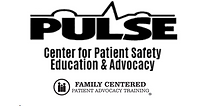Patient and Family Involvement
No Date
Ask a family member or Friend to go with you. Even if you do not need help now, you might need it later (#17)
No Date Patient and family engagement is an area of increasing importance for hospitals. Not only is engaging patients and families and providing patient- and family-centered care the right thing to do, but also the many individual benefits of patient and family engagement work together to contribute to improved hospital performance.
No Date Social Isolation is a risk factor . . . Research is clear that isolating patients at their most vulnerable times from the people who know them best places them at risk for medical error, emotional harm, inconsistencies in care, and costly unnecessary care.1,2
August 2019
In the July 16, 2019, issue of Pharmacy Practice News, ISMP president, Michael R. Cohen, published a noteworthy commentary about what healthcare consumers can do to help prevent medication errors.The inspiration for the commentary arose from significant dialog and questions received in response to articles ISMP published in this newsletter in early 2019.
July 2019
You likely heard about this incident in the news earlier this year: A woman died after receiving the paralyzing agent vecuronium instead of the sedative midazolam (Versed, discontinued brand) when the wrong medication was retrieved from an automated dispensing cabinet (ADC).
December 2018 Rounds often happen without directly involving the patient—or more importantly when the patients are children, their parents. The program, named I-PASS (see box below), aimed to flip that by creating family-centered rounds. The program created checks to ensure that rounds include patients and parents, that medical staff discuss all important elements of care each day, and that parents receive write-ups of daily rounds. It also provided training for staff to learn how to facilitate family-centered rounds.
February 2018
Alongside clinical imperatives, strong patient engagement can supplement patient safety initiatives in the hospital.
-----
Pulse Center for Patient Safety Education and Advocacy (CPSEA) is dedicated to raising awareness about patient safety through education, advocacy, and support.
We envision a world in which the patient's voice is heard and no one is harmed by healthcare.




